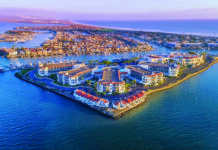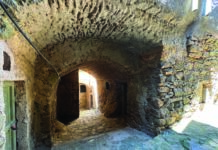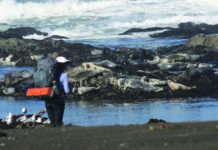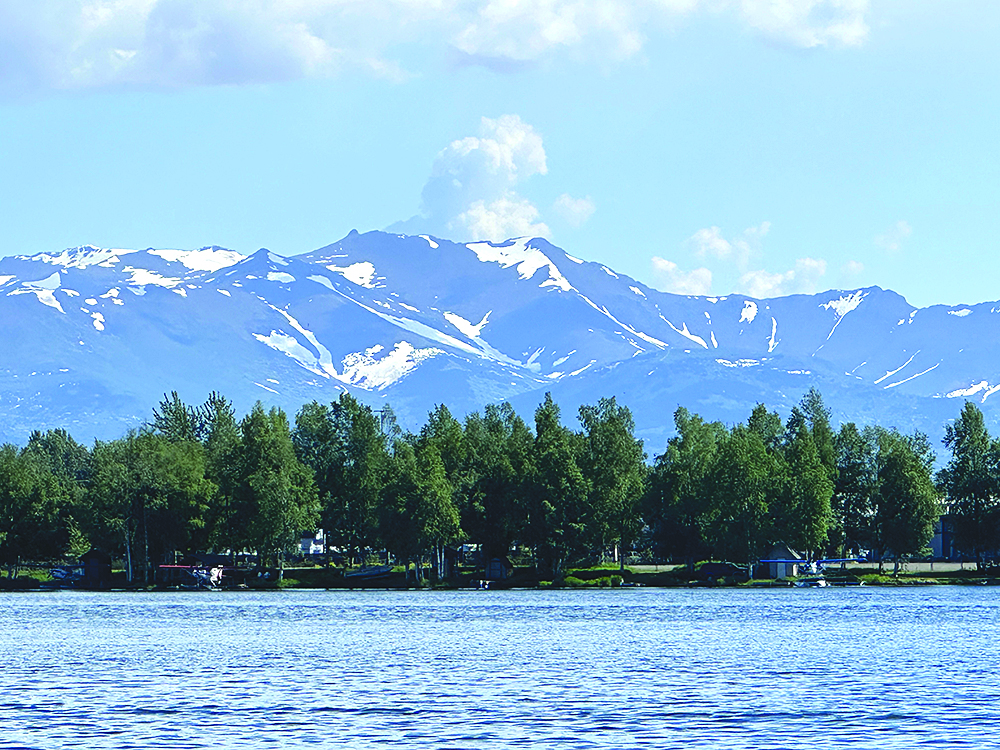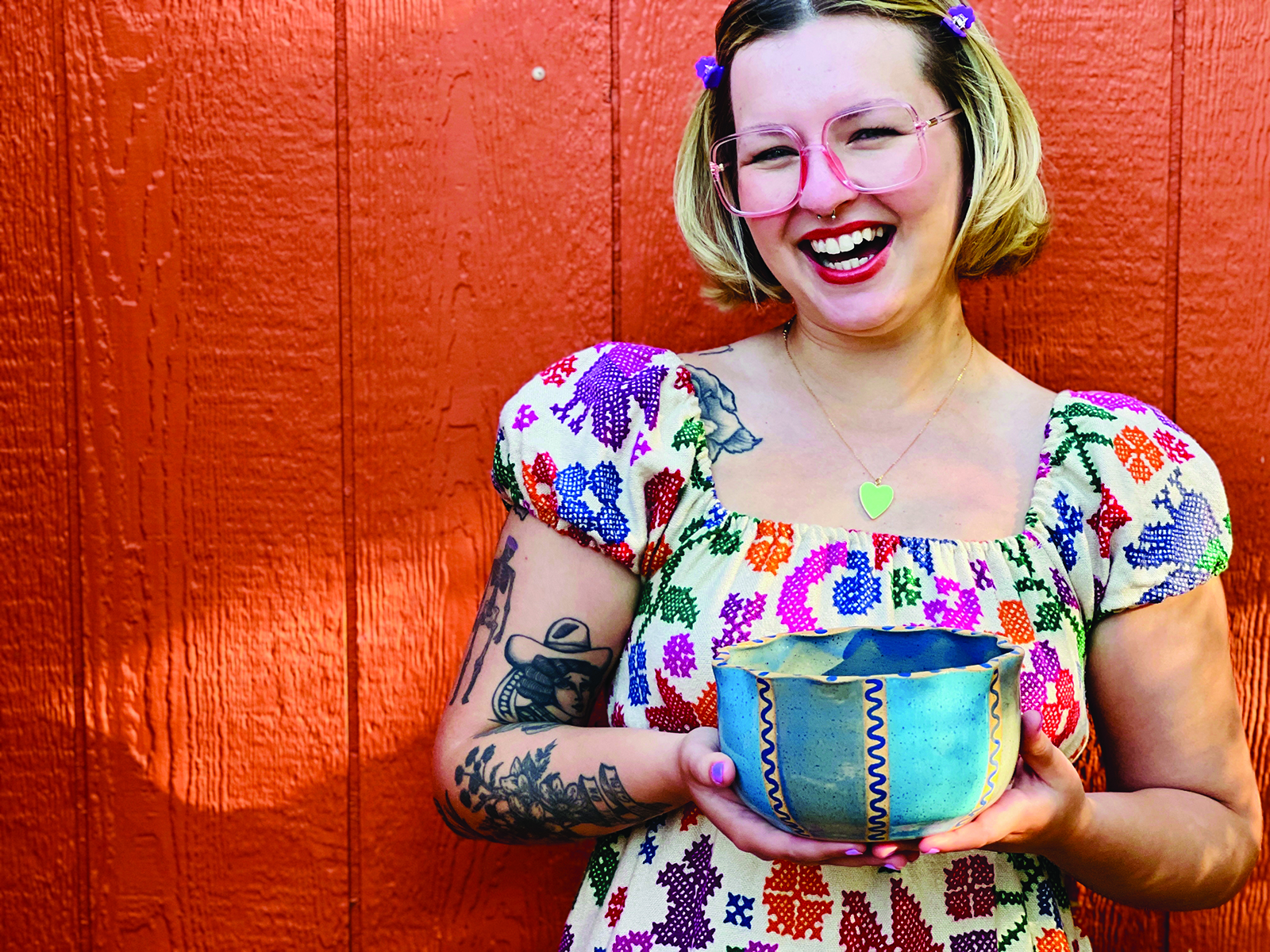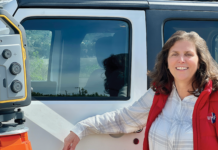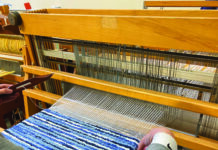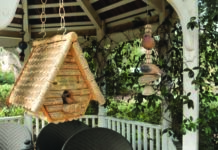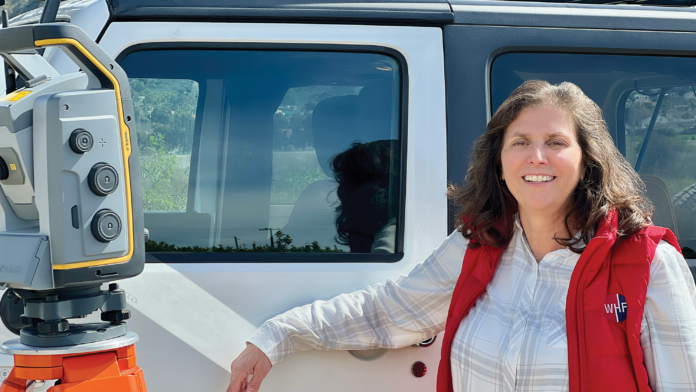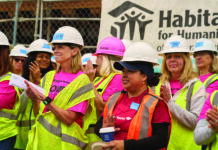By Nancy D. Lackey Shaffer | Photos by Viktor Budnik
The very things that make up modern-day living — roads, buildings, tunnels, dams, bridges, water systems, etc. — exist thanks to the efforts and expertise of civil engineers. And since all of these things exist on land, civil engineering frequently goes hand in hand with land surveying, concerned with boundaries, lines, rules for property development and more.
In Ventura County, one company that looms large in this specialized field is YEMMA Consulting Engineers. Founded and run by Marta Alvarez, the name is one near and dear to Alvarez’s heart: It combines initials from all of her immediate family members, including Enrique and Marta, her parents; her brother Miguel; and the surname Alvarez. (The Y comes from Alvarez’s middle name, Yalile.) For simplicity, Alvarez often refers to her firm as YCE Inc.
For more than 30 years, she and her staff have been providing services such as lot line adjustments, easements, maps and more for residential customers as well as developers, contractors and agriculture industry professionals. Ventana Monthly was lucky enough to speak with Alvarez about being an independent business owner, her love of math, challenges she faced as a woman in STEM and more.
VENTANA MONTHLY: I understand that you’re originally from Chile. How old were you when you came to the United States?
MARTA ALVAREZ: I was 9 years old, escaping communism. My dad, in all his wisdom, saw communism taking over South America and Chile. My parents applied to move to the USA, Canada and Australia. The U.S. answered first — they were in need of engineers.
Was that a difficult transition for you and your family?
Yes, very difficult for all of us. New language, new customs. All new people. No friends and hardest was no large family anymore. That is what I miss the most. My mom is one of seven and my dad, one of five siblings. Lots of aunts, uncles, cousins and lots of family gatherings that were no more after moving here.
We went from living in our own, large house in Chile — which my Dad built — to a single room, a bachelor pad for all five of us. It was hard in some ways, probably more so for our parents than us kids, since we were still young. But I think that it made us closer as a family, too.
Why did you relocate from Miami to California?
My parents wanted the best education for us three kids and California was on top at that time. I was going into ninth grade, my brothers were in elementary school (sixth and seventh grade, I believe). Also, to a lesser degree, my dad missed the mountains, which are non-existent in Florida.
Were either of your parents engineers?
My dad was a civil engineer. The first one in his family.
Were you interested in math and science as a young person?
I really enjoyed and excelled in math since third grade. But I did not “discover” the wonders of science until I was at the university.
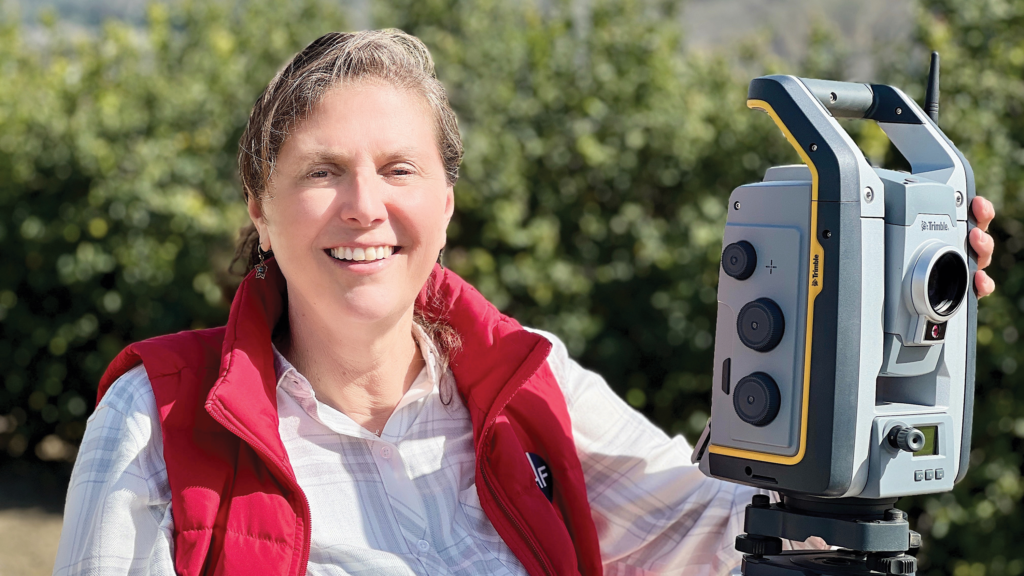
What was it about engineering that appealed to you?
I liked that you build things that help us live better lives. And you combine math and science to do that. Two subjects that, to me, helped explain the “whys” of this world. I liked taking things apart and reassembling them … that notion of finding out how things worked appealed to me tremendously.
Where did you study?
California State University, Northridge for both a bachelor of science in engineering and an MBA.
What kind of work did you do when you first graduated?
My first job after graduating from CSUN was with a computer company, Burroughs, where they designed and provided upper-level support for large computers, such as those used in banks — in those days, 1984. I took this job because I felt that CSUN had not provided me with enough of a computer education to face the growing computer uses and needs. And it turned out to be a great experience, which gave me more confidence with these new tools, the computers.
At what point did you get into civil engineering? What did you like about it?
I started working for a civil engineering company while I was in ninth grade, after school and during summer breaks. I started with the drafting department and later the computer mapping department. I loved that I was learning so many new things that I didn’t get in school. Time flew by every day I was there.
Once I graduated, my second job, after the computer company, was with a small civil engineering company in El Monte, California. I think it was called H.M. Scott & Associates. At this company I learned actual and practical civil engineering design, beyond the theoretical stuff that was taught in school. I loved that what we designed was being constructed. We could see it take shape. It became real.
Tell us a little bit about what a civil engineer and land surveyor does, and what sorts of projects need these professionals.
Civil engineers design most of what we take for granted and that make our lives easier. Civil engineers design and build roads, buildings and all of our underground utility systems that modern living depends on, such as sewers, storm drains and potable water. Engineers make sure that all these designs are built to last with minimum maintenance.
Land surveyors measure the earth, whether it’s elevations or locations of features such as boundaries or fences or buildings. To build almost any of the systems that civil engineers design, you need land surveyors first and last.
Who needs us? Almost anyone owning land, wanting to develop that land — be it for a new building or farming or ranching, needing help with grading designs, soils issues, constructing new roads, new parking lots, new walls and fences, water lines, storm water issues, construction and much more.
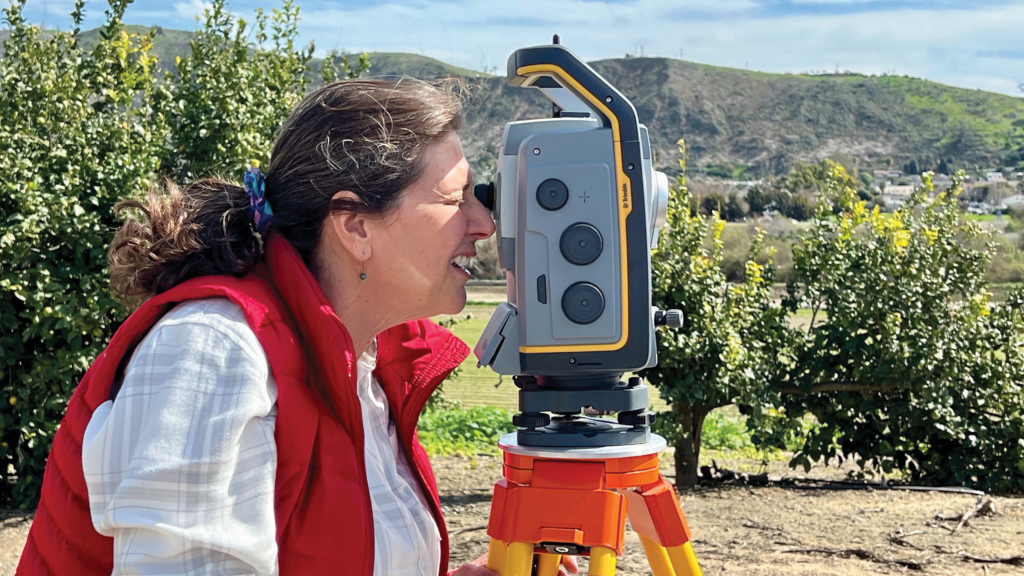
What kinds of skills make for a good civil engineer?
A love of wanting to solve problems that make everyday life easier and the ingenuity to come up with a viable solution. You also need good math and science knowledge to help you figure out if your solution will work or not.
Where did you work before opening YCE Inc.?
While I was still a university student I worked at a different place every summer to fine tune my career choice. I worked for Xerox, the City of Los Angeles, the State of California, the Department of Water and Power, and a medium-sized engineering and land surveying company called VTN.
After graduating, I worked at Burroughs in Pasadena, H.M. Scott in El Monte, Sikand Engineering in Van Nuys, and Dial Services in Oxnard.
What inspired you to start your own business?
While at CSUN I decided that that was the best way for someone to do what they wanted to do with their life. Maybe it was subliminal … maybe my dad said stuff like that but did not do it himself, or maybe I garnered that idea from the parents of school friends that owned their own businesses. Most probably a combination of both.
What were some of the biggest challenges you faced getting your business started?
Getting over being scared that I didn’t know enough about business practices. That is one big reason that I got an MBA. I also took endless numbers of workshops and classes on starting a business. But since my desire was bigger than my fears, I took that Ieap and have not looked back since.
STEM careers in general tend to be male-dominated, and engineering in particular. Did you face any challenges being a woman in your field?
There were some challenges, but what in life doesn’t have challenges? I was the only woman in many of my engineering classes, especially the upper division classes. Mostly, I found the men and teachers to be very helpful. I was the oddity, and I made the best of that.
There’s a funny saying I like: “the odds are good, but the goods are odd.” And I have always been odd enough to like being the odd one!
Do you think things have changed in the 30+ years that you’ve been in business? What’s different in 2024? What’s the same?
Definitely changed, in many ways. More women in engineering now. Great to see that. New tools to make things more efficient. Many more regulations and requirements to get projects permitted. Many more regulations and taxes/expenses to have a successful small business in California. The cards are stacked in favor of the large businesses now. They weren’t so when I started 30+ years ago.
The work ethic seems to be at an all-time low. Not great to experience that.
The things that have remained the same are our loyal customers, for one. Our level of service has not changed, either. We value good customer relations and I believe that our customers see that, because we have some very long lasting and very good customer relationships. Also – math and science never change.
What sorts of projects does YCE Inc. take on?
Our largest share of work is in agricultural projects, but we also work on commercial and residential developments.
We work with farmers and ranchers to develop areas that need grading and drainage designs, or protections from erosion and mudslides, or designs of reservoirs and detention basins, as well as surveys of all types.
On commercial projects we normally perform boundary determinations, topographic surveys, grading and large utility designs, and subdivisions of parcels.
Most residential projects are for boundary or topographic surveys.
Other projects might involve lot line adjustments, records of surveys, stormwater reports and plans, or construction staking.
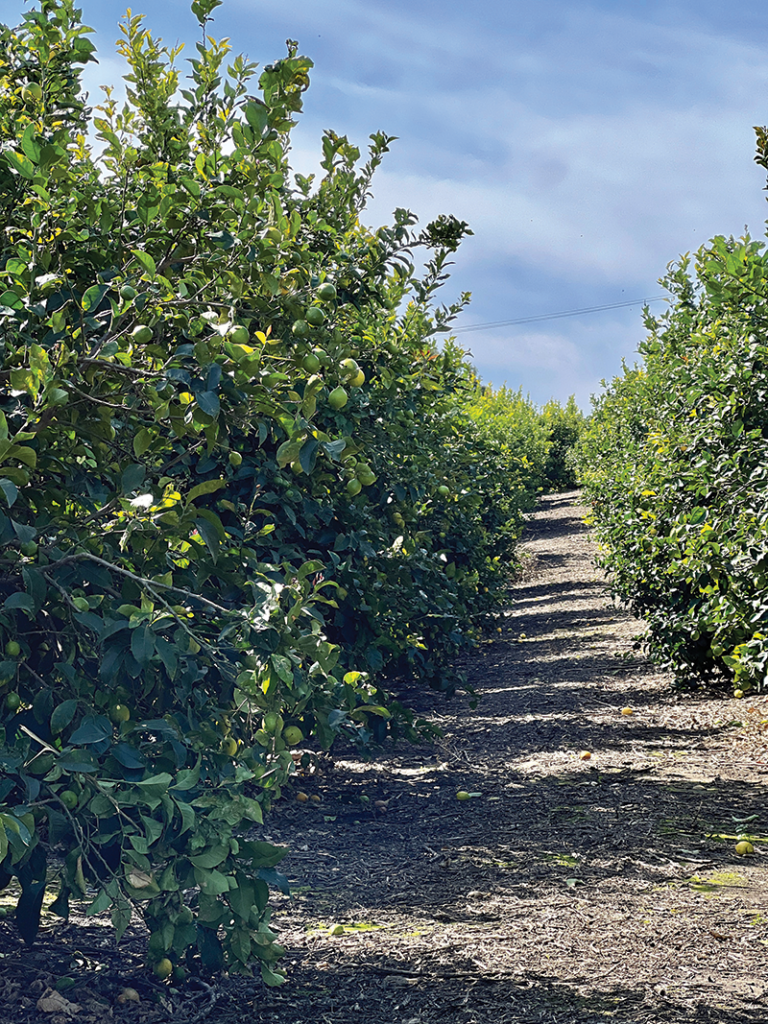
How many people work for you now? What sorts of jobs do they do?
We are a small but mighty staff of six. We manage projects, prepare designs, perform field surveys and site inspections, complete survey and civil calculations, prepare reports, create exhibits and plans, process permits, research projects, coordinate projects with other consultants, with contractors and with clients, and much more. In addition, we collaborate with a network of colleagues on various projects. And we are looking for good engineers and surveyors to join our growing team.
Describe a typical day for you.
Work out at the gym. Get to office before most everyone else. Scan emails and the day’s schedule. Review projects from staff. Work on a couple of proposals. Return phone calls and reply to emails. Meet with my project managers, prioritize work and schedule surveys. Attend site inspections and meet with prospective clients. Review company reports or invoicing. Review the next day’s schedule. Attend an association or networking meeting. Go to bed!
What do you love most about what you do? What do you find the most difficult or the most challenging?
I love the variety of what I do. From designs in the office to inspections in the field. From projects involving thousands of acres to the single family residence. Dealing with clients, contractors and colleagues.
The most difficult and biggest challenge has always been personnel. I feel lucky to have a great staff and a great team of people. But the constant barrage of employee/employer laws can be daunting. And finding qualified personnel has also become a huge challenge.
What kind of future do you envision for yourself and YCE Inc. in, say, the next few years? How about 5-10 years down the road?
In the short term, I envision YCE growing in personnel and clients. I envision keeping our reputation as a company that provides an excellent work product for a fair price. Not the lowest and not the highest in the industry, but a company loyal to its customers and vice versa.
In the longer term, I envision transitioning the management and ownership of YCE to someone younger, with new visions of their own, as I transition to more of a mentor and consultant for the company.
Any “dream” projects you’d like to have come through YCE’s doors? What’s something you’d really love to do?
I have had many dream projects. Projects with many hundreds or thousands of acres where we get to help the clients convert their visions into realities — developing new orchards or crops, reservoirs, barns, corrals, ag roads, basins, greenhouses and farmworker houses.
I love helping my clients from start to finish. My dream job is one where we get to be involved in all aspects of the development, and in the end, the clients are happy to refer us. The best compliment we could get.
When you’re not working at YCE, what other activities do you do?
I love to travel and explore this great big country and this great big Earth. I have friends all over the world that I love to visit when I can. I have been to all seven continents, and my wish list of destinations grows longer every year. My boyfriend and I have a side by side [a type of off-road vehicle] and an RV that allow us to enjoy great camping get-togethers and explore trails that few ever get to see. I also enjoy playing pickleball, target shooting and going to the Bakersfield Condors hockey games. Go Condors!
I understand that you were involved with the movie “Dream Big: Engineering Our World.” Can you tell me a little bit about that?
I submitted a short essay about why I became an engineer and was very surprised to find that I had won a premiere of the movie “Dream Big.” I saw it as a great opportunity to combine the world of engineering with my passion for outreach. ASCE, the American Society of Civil Engineers, the sponsor of the movie, envisioned the premiere of the movie at a local school. However, I hired a couple of friends to help me promote this opportunity to the whole community. We were able to do two showings of the movie at a local movie theater, on the big screen, and accommodate over 400 people that had signed up. During the premiere I awarded scholarships to two young ladies pursuing careers in engineering. It was a great outreach event that I was fortunate enough to be able to share with lots of others.
Any bit of wisdom you’d like to pass along?
I would like to let young people, and everyone, know that engineering and land surveying can be great careers and should be considered by everyone that likes to solve problems. If you have a knack for math and science, even better. As part of our outreach efforts, YCE normally hires one or two interns per year. I encourage anyone interested in engineering and land surveying to contact me, or any of my staff. We are always happy to promote the professions and help guide the next generation of engineers and surveyors find their path to these professions.
YCE Inc.
1587 Morse Avenue, Suite A, Ventura
805.650.6995
malvarez@yceinc.com
www.yceinc.com


